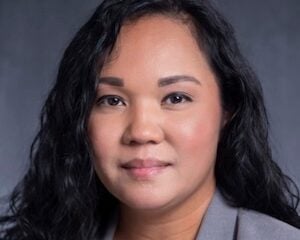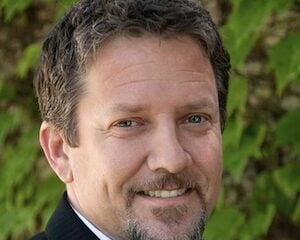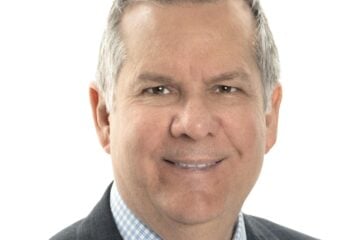Paths to pubradio stardom: drifting, struggling and on a beeline
 Lisa A. Phillips has just started appearing in bookstores to promote her newly published Public Radio Behind the Voices (CDS Books, 334 pages), which profiles 43 national program hosts and other stars.
Lisa A. Phillips has just started appearing in bookstores to promote her newly published Public Radio Behind the Voices (CDS Books, 334 pages), which profiles 43 national program hosts and other stars.
To be ready in case she’s interviewed, Phillips has virtually memorized her book.
Quick! Who had accountants for fathers? She ticks them off: Ira Glass, Michael Feldman and Bob Edwards. Alas, if having an accountant father would cause anything in particular in a public radio star, that pattern of results defies theorizing.
In her travels and phone interviews over the past two years she enjoyed many interviews, among them Performance Today weekend host Korva Coleman, who “lives very intentionally,” putting her family first, and Bill McGlaughlin, conductor and host of St. Paul Sunday recitals, who now concentrates on composing.
Six subjects didn’t give her interviews, including some who’ve already been profiled to death, such as Garrison Keillor, Tom and Ray Magliozzi of Car Talk, and Ira Glass.
 Phillips herself has worked in public radio. Now a journalism teacher, she lives with her husband and daughter in the Hudson Valley, where she was bureau chief for Albany’s WAMC.
Phillips herself has worked in public radio. Now a journalism teacher, she lives with her husband and daughter in the Hudson Valley, where she was bureau chief for Albany’s WAMC.
Her first reporting job, in 1992, was at KTPR in Ft. Dodge, Iowa, where she felt intensely aware of being a Jewish girl from Connecticut. She says it took her a few years of Midwest living before she knew how to enjoy the laid-back humor of Michael Feldman’s Whad’Ya Know? But from the start Phillips idolized Terry Gross.
She still does. This is how Phillips describes Gross at work on Fresh Air: “She keeps a sense of wonder in her conversations, without sounding at all naïve. In the end, the interview feels like an experience, a journey, not a confrontation or a fact-finding mission. I listen to Fresh Air with a level of absorption that I don’t find in any other program.”
This fan wrote a book for fans — Visability Inc. is promoting the book as a pledge premium — and most of the material comes from interviews with the subjects themselves. There’s no trail of blood from chapter to chapter. Though Phillips reports a few negative comments about Bob Edwards (“he was never very lively”) and Juan Williams (he doesn’t always ask fierce questions), those profiles and the others are warm and positive.
It’s an overwhelmingly 50ish bunch that, as younger colleagues know, have settled into some of the best jobs in broadcast journalism (if you don’t expect show-biz salaries) and are clinging tightly to them.
As Diane Rehm and other women of that cohort testify, they came up when women did not expect to have top on-air jobs. Back in the 1960s, the young Susan Stamberg, bored by minor jobs, heard that WAMU was hiring a producer but she didn’t know what the job entailed. “A producer is someone who doesn’t take no for an answer,” a friend explained. Stamberg thought: “I can do that!”
Stamberg later became the country’s first female host of a national broadcast, All Things Considered, and reminds Phillips that some grumbling radio guys weren’t ready for any such thing.
Several ATC hosting teams later, Stamberg recalls how wonderful she felt on one recent workday when she happened to sit between Michele Norris and Melissa Block, the show’s newest co-hosts. As Phillips writes, Stamberg felt keenly that day “how much had changed from her generation, when one woman host was controversial, to theirs, when two at a time were accepted without question.”
Some of the stars made a beeline from childhood to journalism or radio, including Edwards, Linda Wertheimer and Carl Kasell, while others came almost by accident. Weekend Edition Sunday host Liane Hansen was a secretary at WSKG in Binghamton, N.Y., when the new morning host copped out and the manager drafted her.
As you might expect from the ultra-casual style of Marketplace host Kai Ryssdal, he makes it sound like he came to radio serendipitously, trying an internship at San Francisco’s KQED when he marking time after a zigzag career in the Navy and the U.S. embassy in Beijing.
Morning Edition co-host Renee Montagne began to volunteer at the Bay Area progressive community station KPOO when some college friends had shows there; Montagne engineered a show for her pal, the poet Ntozake Shange. Montagne drifted into news.
Like Montagne, her co-host Steve Inskeep also got early experience on a progressive community station. His mentor at Pacifica’s WBAI in New York was Amy Goodman, then the station’s news director and now host of Pacifica’s news program, Democracy Now!
Human interest tidbits are scattered throughout the profiles:
- The reporting triumvirate of Cokie Roberts, Nina Totenberg and Linda Wertheimer are so close that they and their husbands “have a standing Saturday night dinner and movie date.”
- Scott Simon, easily the romantic lead of the book, uses the French word cornichon, or pickle, for his French-born wife, Caroline Richard, and she enjoys the endearment, putting the word on her stationery in gold letters.
- When Rehm’s bosses at American University tried to cancel her interview with Salman Rushdie, fearing that Islamic clerics would extend their fatwah to the school, she threatened to quit, and the show went on.
- Keillor did come from a small Minnesota town, but is not one of those Norwegian-Americans he makes light of. Or a bachelor or a farmer. His family came from Scotland.
- Phillips tells us who isn’t gay (Simon, Gross and Glass somehow had listeners guessing wrong), but she doesn’t say who is. She had expected to find at least one.
By now it’s almost a cliché for public broadcasters to say they have the best jobs in the world. Maybe they really think so. Daniel Schorr, 88, tells Phillips that his news analyst gig with NPR keeps him alive. Newscaster Carl Kasell, at 71, sees no reason to retire. “Retire from what?” he asks. “This isn’t work. This is fun.”
Closer to the beginning of his radio career, Ryssdal counts himself lucky to host Marketplace, but remembers an even better job. When he was in Navy flight training in Pensacola, Fla., flying jets was cool but even that wasn’t the greatest attraction. The bigger thrill was having time for waterskiing. The job at Marketplace, he tells Phillips, “is a very close second to waterskiing for a living.”





